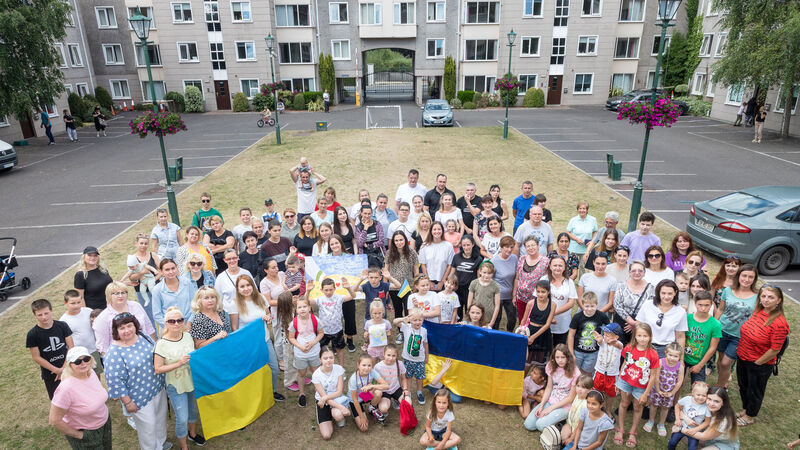Chickenpox outbreak means Ukrainians are unable to leave Cork student accommodation

Some of the up to 300 Ukrainian refugees, who were temporarily staying in student accommodation on the Carrigrohane Road in Cork, and now must move to make room for students. Picture: David Creedon
A chicken pox outbreak has prevented seven Ukrainian families from leaving a student accommodation complex in Cork, which they were due to depart at the weekend.
A Government contract with the student village came to end at the weekend, with hundreds of Ukrainian refugees leaving on Saturday and Sunday to make way for the return of students for the coming year.









